Electric Boogaloo
Titre original : Electric Boogaloo: The Wild, Untold Story of Cannon Films
NOTE IMDb
7,4/10
6,3 k
MA NOTE
Ajouter une intrigue dans votre langueThe history of the independent film company, The Cannon Film Group, Inc.The history of the independent film company, The Cannon Film Group, Inc.The history of the independent film company, The Cannon Film Group, Inc.
Menahem Golan
- Self - Cannon Chairman
- (images d'archives)
Itzik Kol
- Self - Production Executive
- (images d'archives)
Roni Ya'ackov
- Self - Production Executive
- (as Rony Yakov)
Yftach Katzur
- Self - Actor
- (as Yiftach Katzur)
Avis à la une
The name Cannon Films is an evocative one, bringing to mind synonyms like schlock and cut-rate, and it's a well-earned reputation for cheapness. The story of two Israeli guys with a passion for making movies is a noble one, although their questionable business decisions tend to undercut that enthusiasm. Still, their rise and fall make for interesting documentary material, and that's part of what makes "Electric Boogaloo" so good.
The other reason is the testimonial side of things. Rounded up before the camera are a wide-ranging group of people that have had dealings with the studio, and each and every one of them is eager to opine on such a reckless outfit. I can only wonder what venom Christopher Reeves would have in store were he still us today, and I would like to have heard Stallone's views after "Over the Top" (good or bad, can't tell). Chuck Norris is a glaring omission, given his 5-picture deal with them . . . or is he merely content with how it all turned out? But there's the ever-charming Catherine Mary Stewart and the surprisingly mocking Alex Winter offering their input, and both are amusing. There's a lot involved in this; it's really a varied roster.
This is a hugely entertaining movie that moves at a brisk pace and is funny throughout. A lot easier to sit through than most of Cannon's movie's, that's for sure.
Highly recommended.
8/10
The other reason is the testimonial side of things. Rounded up before the camera are a wide-ranging group of people that have had dealings with the studio, and each and every one of them is eager to opine on such a reckless outfit. I can only wonder what venom Christopher Reeves would have in store were he still us today, and I would like to have heard Stallone's views after "Over the Top" (good or bad, can't tell). Chuck Norris is a glaring omission, given his 5-picture deal with them . . . or is he merely content with how it all turned out? But there's the ever-charming Catherine Mary Stewart and the surprisingly mocking Alex Winter offering their input, and both are amusing. There's a lot involved in this; it's really a varied roster.
This is a hugely entertaining movie that moves at a brisk pace and is funny throughout. A lot easier to sit through than most of Cannon's movie's, that's for sure.
Highly recommended.
8/10
When Israeli cousins Menahem Golan and Yoram Globus took over The Cannon Group in 1979, cinema had little idea what it was in for. With the company in a dyer financial situation, Golan and Globus began churning out pictures of questionable quality at an unnerving rate, making a small profit with the odd micro-hit that quickly added up. Soon enough, the exploitation pioneers were buying up cinema chains, paying movie stars ludicrous amounts of money, taking over Cannes, and releasing some of the most diabolical and insane movies of 1980's. Electric Boogaloo tells the rapid rise and even faster implosion of the notorious studio, with the people both in front of and behind the camera telling their own anecdotes of the madcap antics that seemed to engulf their every production.
Director Mark Hartley has made a career in documenting exploitation cinema with Not Quite Hollywood (2008) and Machete Maidens Unleashed! (2010), and Electric Boogaloo is undoubtedly his most fun. Packed with clips of such cinematic disasters as Enter the Ninja (1981), Hercules (1983), Breakin' 2: Electric Boogaloo (1984) and Superman IV: The Quest for Peace (1987), the film lambastes Cannon as much as it adores their persistence, levelling the field by also showing us their more interesting efforts - the likes of Lifeforce (1985) and The Texas Chainsaw Massacre 2 (1986), both directed by Tobe Hooper - and the films that were surprisingly great, such as Runaway Train (1985) and Barfly (1987). But this isn't just a collection of clips from some of the most outlandish films ever made, Hartley ensures that the film is highly informative about the 'creative' minds behind the company and the reasons for its inevitable fall from grace.
Amongst the interviewees are John G. Avildsen, Franco Nero, Dolph Lundgren, Robert Forster, Bo Derek and Alex Winter, all telling stories that will have you laughing as well as questioning just how the Israeli's got away with it for so long. Some of it is brutal, with Golan especially coming across as an ego-maniacal tyrant with little care for the safety of his crew and no understanding of the American audience he was targeting. Yet it's all told with a nostalgic fondness, celebrating the fact that these were little guys who actually made it, and doing it all on their own terms. They were, after all, responsible for Chuck Norris's career and the prolonging of Charles Bronson's (although it's questionable as to whether or not that's a good thing), and were eager to give great but fading directors such as Jean-Luc Godard, John Cassavetes and Franco Zeffirelli another shot with complete artistic control. It's a strange story - Golan and Globus clearly adored cinema but didn't seem to understand it - but this is a success story like no other, and insomniacs with little to do at night but watch TV have a lot to thank them for.
Director Mark Hartley has made a career in documenting exploitation cinema with Not Quite Hollywood (2008) and Machete Maidens Unleashed! (2010), and Electric Boogaloo is undoubtedly his most fun. Packed with clips of such cinematic disasters as Enter the Ninja (1981), Hercules (1983), Breakin' 2: Electric Boogaloo (1984) and Superman IV: The Quest for Peace (1987), the film lambastes Cannon as much as it adores their persistence, levelling the field by also showing us their more interesting efforts - the likes of Lifeforce (1985) and The Texas Chainsaw Massacre 2 (1986), both directed by Tobe Hooper - and the films that were surprisingly great, such as Runaway Train (1985) and Barfly (1987). But this isn't just a collection of clips from some of the most outlandish films ever made, Hartley ensures that the film is highly informative about the 'creative' minds behind the company and the reasons for its inevitable fall from grace.
Amongst the interviewees are John G. Avildsen, Franco Nero, Dolph Lundgren, Robert Forster, Bo Derek and Alex Winter, all telling stories that will have you laughing as well as questioning just how the Israeli's got away with it for so long. Some of it is brutal, with Golan especially coming across as an ego-maniacal tyrant with little care for the safety of his crew and no understanding of the American audience he was targeting. Yet it's all told with a nostalgic fondness, celebrating the fact that these were little guys who actually made it, and doing it all on their own terms. They were, after all, responsible for Chuck Norris's career and the prolonging of Charles Bronson's (although it's questionable as to whether or not that's a good thing), and were eager to give great but fading directors such as Jean-Luc Godard, John Cassavetes and Franco Zeffirelli another shot with complete artistic control. It's a strange story - Golan and Globus clearly adored cinema but didn't seem to understand it - but this is a success story like no other, and insomniacs with little to do at night but watch TV have a lot to thank them for.
ELECTRIC BOOGALOO: THE WILD, UNTOLD STORY OF CANNON FILMS is a documentary that does exactly what it says on the tin. That is, to celebrate the wild heydays of Cannon Films, a 1980s production house who put out some of the biggest, silliest, cheesiest, and most effects-fuelled films of that decade.
It's a rise-and-fall tale, brought to live via copious clips and lots of interview footage with various stars, directors, and producers who were involved with the films themselves. Thus for a cinema fan - especially somebody who's seen a lot of the films, like myself - it's a real visual treat. The film is a celebration of the Golan and Globus approach - which is to churn out film after film, hoping one or two of them will be a success - and the eventual hubris which saw the company's downfall. It's constantly funny as well, which really helps.
It's a rise-and-fall tale, brought to live via copious clips and lots of interview footage with various stars, directors, and producers who were involved with the films themselves. Thus for a cinema fan - especially somebody who's seen a lot of the films, like myself - it's a real visual treat. The film is a celebration of the Golan and Globus approach - which is to churn out film after film, hoping one or two of them will be a success - and the eventual hubris which saw the company's downfall. It's constantly funny as well, which really helps.
8cafm
Mark Hartley, the man behind the wildly entertaining documentaries about B-grade films and filmmakers, Not Quite Hollywood (2008) and Machete Maidens Unleashed (2010), premiered his latest and, sadly, last documentary - Electric Boogaloo: The Wild, Untold Story of Cannon Films - in the opening weekend of the 2014 Melbourne International Festival (MIFF).
As with Hartley's previous documentaries, the story at the heart of Electric Boogaloo (its name taken from the film, "Breakin' 2: Electric Boogaloo", the strange sequel to the hit 1984 rap dancing film, "Breakin'") cleverly unfolds through the skillful editing together of myriad eyewitness talking heads and interspersing these with clips from relevant films along with some wonderfully tongue-in-cheek animations. Essentially, Hartley's latest film explores the story behind Cannon films from its inception to its ultimate demise, following the weird and wild careers of crazy Israeli cinephiles-cum-directors-cum-producers-cum-Hollywood B-grade movie moguls, Menahem Golan and Yoram Globus. Theirs is an extraordinary rags-to-riches- rags story and one well worth seeing for yourself. Hartley has a rare gift for storytelling in his documentaries, bringing together a complex panoply of opinions, rants, scathing criticism and fond remembrances, and weaving these all together into a taut, laugh-out-loud, highly entertaining film, and Electric Boogaloo is no exception, as demonstrated by the very enthusiastic reception the film received from the audience at MIFF.
For film lovers and those who grew up with the Golan/Globus catalog in the 1980s with films like Missing in Action, Lifeforce, Treasure of the Four Crowns, American Ninja, Break Dance, Death Wish 2 and its sequels, Masters of the Universe, The Last American Virgin, Cyborg, Superman IV: The Quest for Peace ... the list goes on, and on, and on ... this film is pure joy and something of a nostalgia trip. In this regard the film does have a sad side as it follows how the dreams of Golan and Globus would eventually fizzle up in bankruptcy and acrimony, leaving behind a library of impossibly bizarre creations that are truly weird and wonderful. Electric Boogaloo will no doubt prompt you to want to revisit many of these titles or discover others for the first time. I suspect that, being a true lover of B movies, this is ultimately one of Hartley's aims.
As with Hartley's previous documentaries, the story at the heart of Electric Boogaloo (its name taken from the film, "Breakin' 2: Electric Boogaloo", the strange sequel to the hit 1984 rap dancing film, "Breakin'") cleverly unfolds through the skillful editing together of myriad eyewitness talking heads and interspersing these with clips from relevant films along with some wonderfully tongue-in-cheek animations. Essentially, Hartley's latest film explores the story behind Cannon films from its inception to its ultimate demise, following the weird and wild careers of crazy Israeli cinephiles-cum-directors-cum-producers-cum-Hollywood B-grade movie moguls, Menahem Golan and Yoram Globus. Theirs is an extraordinary rags-to-riches- rags story and one well worth seeing for yourself. Hartley has a rare gift for storytelling in his documentaries, bringing together a complex panoply of opinions, rants, scathing criticism and fond remembrances, and weaving these all together into a taut, laugh-out-loud, highly entertaining film, and Electric Boogaloo is no exception, as demonstrated by the very enthusiastic reception the film received from the audience at MIFF.
For film lovers and those who grew up with the Golan/Globus catalog in the 1980s with films like Missing in Action, Lifeforce, Treasure of the Four Crowns, American Ninja, Break Dance, Death Wish 2 and its sequels, Masters of the Universe, The Last American Virgin, Cyborg, Superman IV: The Quest for Peace ... the list goes on, and on, and on ... this film is pure joy and something of a nostalgia trip. In this regard the film does have a sad side as it follows how the dreams of Golan and Globus would eventually fizzle up in bankruptcy and acrimony, leaving behind a library of impossibly bizarre creations that are truly weird and wonderful. Electric Boogaloo will no doubt prompt you to want to revisit many of these titles or discover others for the first time. I suspect that, being a true lover of B movies, this is ultimately one of Hartley's aims.
Fairly interesting documentary charts the rise and fall of The Cannon Group, a company made popular by two Israeli cousins, Menahem Golan and Yoram Globus. For the most part, they didn't exactly make prestige films, but they did an uncanny job of cranking out scores of B pictures that were often quite entertaining, no matter if the level of quality wasn't the highest. After a number of years, they did leave an impression on the film industry, if only for their impressive knack for "pre-selling" movies, using no more than posters, titles, and concepts.
This reasonably entertaining production is from Mark Hartley, who's left his own indelible stamp on the industry by making these kinds of films; previously, he'd done documentaries on the cult and exploitation pictures of both Australia ("Not Quite Hollywood") and the Philippines ("Machete Maidens Unleashed"). Instead of having a narrator to sort of take us step by step through this tale, a series of sit down interviews play in quick succession, with various cast and crew of numerous Cannon efforts giving their thoughts on the movies that they made. Some of the interviews are quite engaging; people interviewed include Franco Nero, Sybil Danning, Laurene Landon (it's actually rather distressing seeing her mime setting fire to a copy of "America 3000"), Boaz Davidson, David Engelbach, Christopher Pearce, Richard Edlund, Tobe Hooper, Greydon Clark, Alex Winter, and others.
After "Electric Boogaloo" is over, one does feel that they've gotten a pretty vivid, "warts and all" picture of the Golan & Globus personalities. Golan was the real character: volatile, demanding, opinionated. Globus was the somewhat more restrained of the two, the one who handled more business oriented duties. Ultimately, their hubris caught up with them. Although they could on occasion produce something truly special ("Runaway Train"), they simply ended up getting too ambitious, and getting in over their heads.
Many of the interviewees do seem to hold Cannon product in quite a bit of contempt, which is unfortunate, because while much of it may not be Oscar baiting material, it was, most of the time, a good deal of fun. If you're like this viewer, The Cannon Group has given you many hours of viewing pleasure with their B grade action movies, thrillers, sci-fi, and horror features.
In the end, it's quite telling that Golan & Globus declined to participate in this documentary, instead beating it to the punch with their OWN non fiction feature titled "The Go Go Boys".
Seven out of 10.
This reasonably entertaining production is from Mark Hartley, who's left his own indelible stamp on the industry by making these kinds of films; previously, he'd done documentaries on the cult and exploitation pictures of both Australia ("Not Quite Hollywood") and the Philippines ("Machete Maidens Unleashed"). Instead of having a narrator to sort of take us step by step through this tale, a series of sit down interviews play in quick succession, with various cast and crew of numerous Cannon efforts giving their thoughts on the movies that they made. Some of the interviews are quite engaging; people interviewed include Franco Nero, Sybil Danning, Laurene Landon (it's actually rather distressing seeing her mime setting fire to a copy of "America 3000"), Boaz Davidson, David Engelbach, Christopher Pearce, Richard Edlund, Tobe Hooper, Greydon Clark, Alex Winter, and others.
After "Electric Boogaloo" is over, one does feel that they've gotten a pretty vivid, "warts and all" picture of the Golan & Globus personalities. Golan was the real character: volatile, demanding, opinionated. Globus was the somewhat more restrained of the two, the one who handled more business oriented duties. Ultimately, their hubris caught up with them. Although they could on occasion produce something truly special ("Runaway Train"), they simply ended up getting too ambitious, and getting in over their heads.
Many of the interviewees do seem to hold Cannon product in quite a bit of contempt, which is unfortunate, because while much of it may not be Oscar baiting material, it was, most of the time, a good deal of fun. If you're like this viewer, The Cannon Group has given you many hours of viewing pleasure with their B grade action movies, thrillers, sci-fi, and horror features.
In the end, it's quite telling that Golan & Globus declined to participate in this documentary, instead beating it to the punch with their OWN non fiction feature titled "The Go Go Boys".
Seven out of 10.
Le saviez-vous
- AnecdotesMichael Winner was going to be interviewed for the documentary, but he died before production started on it.
- Citations
Roni Ya'ackov: She said, "Menahem, I can't do it. I'm dying." He said, "Do it... then die!"
- ConnexionsEdited from Omnibus: The Last Moguls (1986)
Meilleurs choix
Connectez-vous pour évaluer et suivre la liste de favoris afin de recevoir des recommandations personnalisées
- How long is Electric Boogaloo: The Wild, Untold Story of Cannon Films?Alimenté par Alexa
Détails
- Date de sortie
- Pays d’origine
- Site officiel
- Langue
- Aussi connu sous le nom de
- Electric Boogaloo: The Wild, Untold Story of Cannon Films
- Sociétés de production
- Voir plus de crédits d'entreprise sur IMDbPro
Box-office
- Montant brut mondial
- 864 $US
- Durée
- 1h 46min(106 min)
- Couleur
- Rapport de forme
- 1.78 : 1
Contribuer à cette page
Suggérer une modification ou ajouter du contenu manquant


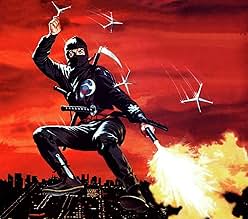

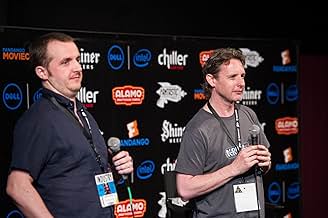
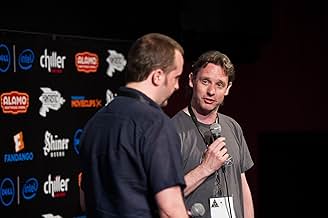
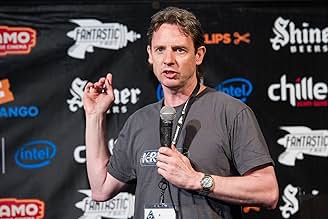

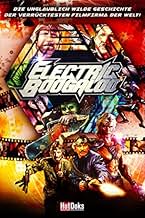
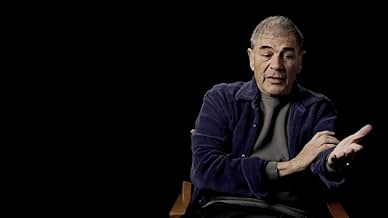
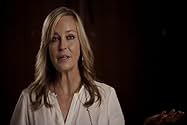














![[REC] 4: Apocalypse](https://m.media-amazon.com/images/M/MV5BMzI1MWVjMGMtNDgwMS00ODU2LThkYjMtZjU0NDRjZTNhYzJhXkEyXkFqcGc@._V1_QL75_UY207_CR6)






